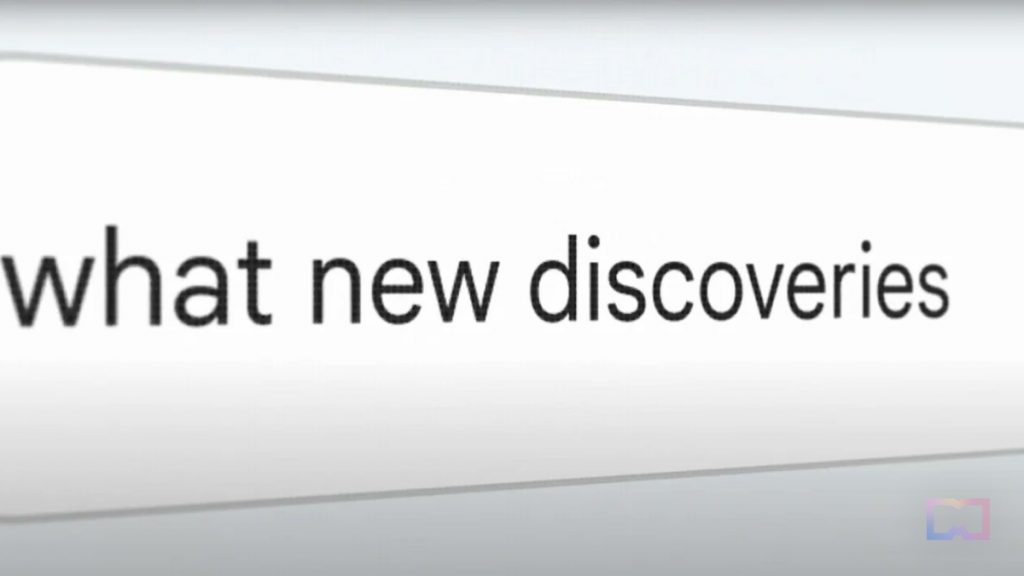Google AI Search Update: New Chatbot ‘Bard’ Unveiled to Challenge ChatGPT-powered Bing

In Brief
Users will soon see AI-powered features in Google’s search engine that can distill complex information into digestible formats.
Google will start onboarding individual developers, creators and enterprises to try our Generative Language API next month.
Google says it is committed to AI responsibility.

Google announced on Monday the launch of its latest AI-powered chatbot called ‘Bard.’ The “experimental conversational AI service” is designed to break down complex information into digestible answers to queries, CEO Sundar Pichai said.
This news comes after it was revealed last week that Google was testing its own AI-powered chatbot as it joins Microsoft-backed OpenAI in Big Tech’s AI arms race.
According to a blog post published by Pichai, Bard uses advanced natural language processing and machine learning algorithms powered by its Language Model for Dialogue Applications (or LaMDA for short) to understand the context of a user’s search and deliver results based on the user’s intention.
Currently still in its testing phase, Bard will be released initially with the lightweight model version of LaMDA, which requires significantly less computing power, enabling the platform to scale to more users and allowing for more feedback. The chatbot will begin rolling out soon, but no concrete date has been set. The company plans to gradually expand its usage in the coming months.
Google’s latest AI technologies, like LaMDA, PaLM, Imagen, and MusicLM, are building on the company’s history of using AI to improve its search engine. One of Google’s transformer models, BERT, was trained to understand the intricacies of human language.
Two years ago, Google introduced MUM, which Pichai says is “1,000 times more powerful than BERT and has next-level and multi-lingual understanding of information which can pick out key moments in videos and provide critical information, including crisis support, in more languages.”
Just as OpenAI is offering API of its GPT-3, Codex, and DALL-E AI models for developers to innovate with AI, Google will also be doing the same with its AI products.
Next month, the company will start onboarding individual developers, creators, and enterprises so they can try its Generative Language API, initially powered by LaMDA, with a range of models to follow. Google intends to create a suite of tools and APIs that will make it easy for developers to build more innovative applications with AI.
Pichai also touched on responsible AI. In 2018, Google was one of the first to publish a set of AI principles, demonstrating its commitment to ensuring the safe and ethical use of AI. The company provides education and resources for its researchers and collaborates with governments and external organizations to develop standards and best practices.
Google’s approach to responsible AI development has drawn comparisons to Microsoft’s Responsible AI framework and key goals that Microsoft president Brad Smith outlined last week. Both companies have taken a proactive approach to developing ethical guidelines for AI, recognizing the potential risks and challenges posed by the technology.
These efforts by Google and Microsoft highlight the growing importance of responsible AI development and the need for technology companies to be proactive in addressing the ethical implications of AI.
As it races to beat Bing and Baidu, Google’s latest development further strengthens the company’s ambitions of cementing itself as a leader in the field of AI and search technology.
Disclaimer
In line with the Trust Project guidelines, please note that the information provided on this page is not intended to be and should not be interpreted as legal, tax, investment, financial, or any other form of advice. It is important to only invest what you can afford to lose and to seek independent financial advice if you have any doubts. For further information, we suggest referring to the terms and conditions as well as the help and support pages provided by the issuer or advertiser. MetaversePost is committed to accurate, unbiased reporting, but market conditions are subject to change without notice.
About The Author
Cindy is a journalist at Metaverse Post, covering topics related to web3, NFT, metaverse and AI, with a focus on interviews with Web3 industry players. She has spoken to over 30 C-level execs and counting, bringing their valuable insights to readers. Originally from Singapore, Cindy is now based in Tbilisi, Georgia. She holds a Bachelor's degree in Communications & Media Studies from the University of South Australia and has a decade of experience in journalism and writing. Get in touch with her via cindy@mpost.io with press pitches, announcements and interview opportunities.
More articles

Cindy is a journalist at Metaverse Post, covering topics related to web3, NFT, metaverse and AI, with a focus on interviews with Web3 industry players. She has spoken to over 30 C-level execs and counting, bringing their valuable insights to readers. Originally from Singapore, Cindy is now based in Tbilisi, Georgia. She holds a Bachelor's degree in Communications & Media Studies from the University of South Australia and has a decade of experience in journalism and writing. Get in touch with her via cindy@mpost.io with press pitches, announcements and interview opportunities.





















































